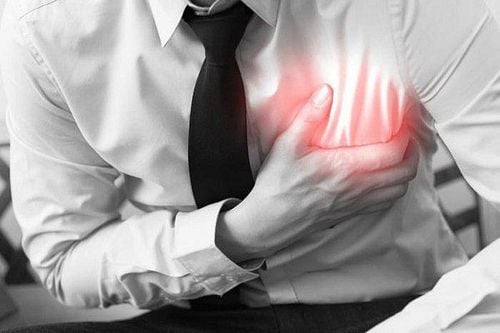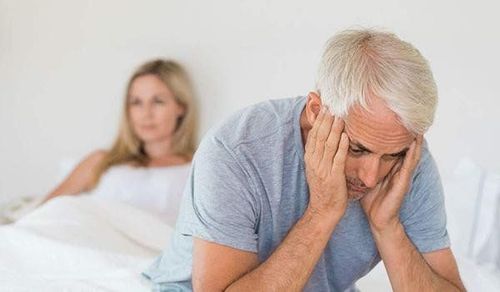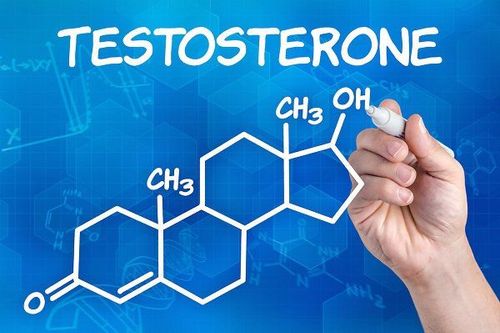This is an automatically translated article.
Testosterone is a sex hormone that produces biological characteristics that are present in men such as muscular build, body hair, and deep voice. Therefore, when testosterone levels decline, it can affect the health and quality of life of men.1. What is low testosterone?
Testosterone levels are difficult to express with a single number. A drop in testosterone lower than normal will lead to the appearance of symptoms or changes that have a direct impact on a man's health and life.
Normal testosterone levels for men range from 270 to 1070 nanograms per deciliter. According to doctors, testosterone levels are considered low when between 230 and 300 nanograms per deciliter.
The diagnosis of testosterone deficiency - or hypogonadism always needs to be accompanied by existing symptoms in the body.
2. What causes low testosterone levels?
Low testosterone levels can occur when the testicles do not produce enough testosterone, a condition known as primary hypogonadism. Or when the hypothalamus (brain) and lobes of the brain (pituitary gland) do not produce the hormones that help stimulate testosterone production, this is called secondary hypogonadism.
Some causes of low testosterone levels:
Age Obesity Diabetes Sleep apnea stimulant use Cancer therapy Stress Malnutrition saddle) Thyroid disorders Genetic problems.
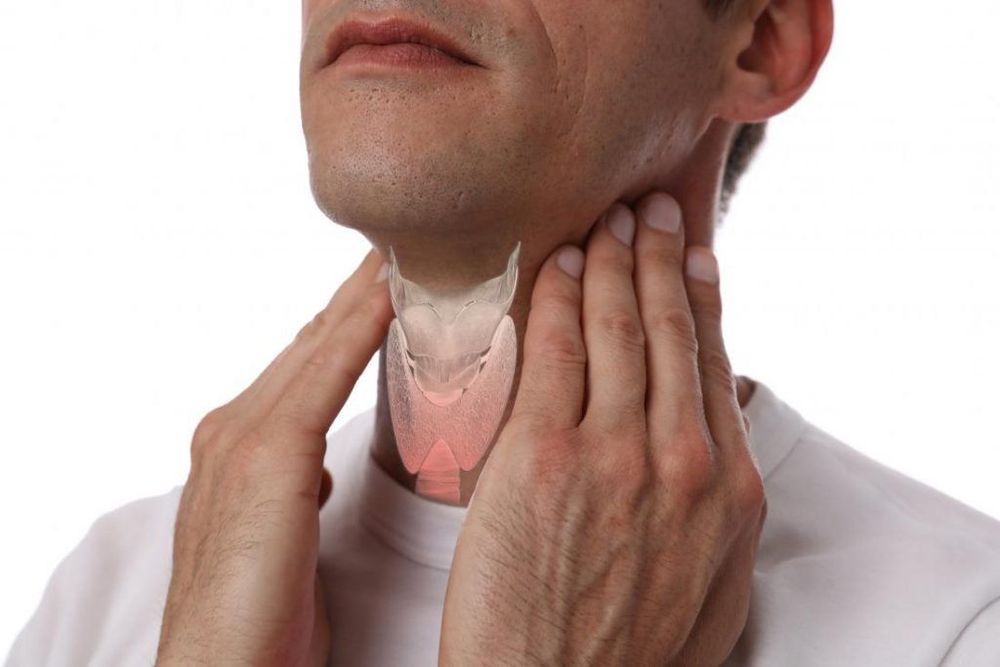
Rối loạn tuyến giáp là một nguyên nhân testosterone thấp
3. How are low testosterone levels diagnosed?
The diagnosis will begin with a medical history review and a physical examination of the patient's condition such as:
Weak libido Erectile dysfunction Weak sperm production Decreased frequency of ejaculation Hair loss armpits, genitals and whole body. If a male patient develops the above symptoms, blood tests will be performed to determine the hormone levels in the blood.
Blood will be collected for testing between 7am and 9am and at least 2 times. Both of these blood tests would have to show a drop in testosterone levels to make a diagnosis.
If the amount of testosterone in the body is excessively reduced, muscle atrophy and osteoporosis will occur, which can easily lead to fractures.
Low testosterone reduces quality of life. In severe conditions, it can increase the risk of heart disease strongly in men. But on the other hand, low testosterone levels help reduce the chances of prostate enlargement and prostate cancer.
4. Treatment of low testosterone levels
When the cause of low testosterone levels has been identified. Treatment will focus on the underlying condition, including: surgery, medication, or lifestyle changes.
4.1 Testosterone replacement therapy
Testosterone replacement therapy (TRT) is often the first choice of treatment for low testosterone levels, when the cause of the condition stems from a problem with the production of testosterone by the testes and pituitary gland. or brain.
4.2 Using Testosterone Tablets
As an alternative to testosterone therapy, the use of medications such as: Anti-estrogens and aromatase inhibitors can help raise testosterone levels in the body or help improve symptoms of this hormone deficiency. However, the use of these drugs is limited due to concerns about side effects and limited effectiveness.Medications for low testosterone levels include:
Testosterone pills: Testosterone products include patches, gels, nasal sprays, intramuscular injections, or pellets. Estrogen blockers: Testosterone replacement therapy often lowers sperm count and impairs the body's ability to produce testosterone. This will be a problem for those who want to get married. Estrogen blockers stop this estrogen (a female hormone) from continuing and help the brain regulate substances that stimulate testosterone production. Using an aromatase inhibitor: This drug has an amazing ability to increase testosterone and decrease estrogen in men who have problems with age-related testosterone decline or obesity. When using the drug to treat low testosterone levels, side effects can occur such as:
Testosterone: Decreased sperm count, enlarged breasts, shrinking testicles, and acne. Testosterone therapy can also worsen sleep apnea and increase the risk of blood clots, heart disease and worsen prostate cancer. Anti-estrogens: The effects of anti-estrogens on women are exactly the opposite of those in men. This anti-hormone drug, if used in men, can cause acne, psychological changes as well as increase the risk of prostate cancer. Aromatase Inhibitors: These are drugs that are generally safe to use and do not carry the potential for serious side effects. The side effects reported with aromatase inhibitors are increased blood pressure and an impact on bone density.
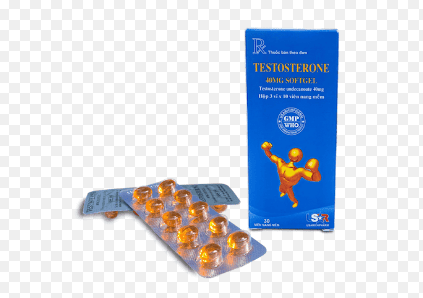
Testosterone dạng viên giúp điều trị tình trạng nồng độ testosterone thấp
5. Therapies to improve low testosterone levels.
5.1 Exercise more sports
Physical activity will help increase the production of testosterone in the male body. In addition to preventing the bad effects of testosterone deficiency, exercise also helps to increase muscle strength, fight osteoporosis, promote energy, and improve physical fitness.
5.2 Balanced diet and nutrition
Foods rich in vitamin D and zinc can help increase testosterone levels in a certain way, not a sudden increase.
Both being overweight and undernourished are detrimental to increasing testosterone. Having a balanced and moderate diet with nutritious foods will be very helpful for people who are in a state of low testosterone levels.
5.3 Get enough sleep
Not getting enough sleep has a very bad effect on testosterone levels, especially in teenagers and young men. By going to bed at a fixed time, eliminating all sleep-inducing factors, and turning off all lights in the room, it becomes easier to fall into a deep and restful sleep.
5.4 Reducing stress
Psychological stress will cause testosterone levels to drop. When stressed, the human body will produce cortisol, which inhibits the body's production of testosterone.
Falling into a state of stress in life seems inevitable but this can be somewhat relieved through activities that relax the mind and body, exercise, have a good shape. Practice good sleep hygiene, and avoid stimulants like caffeine and nicotine.
5.5 Avoid using drugs that have the ability to lower testosterone
Certain drugs such as opioid pain relievers and anabolic drugs have the potential to severely reduce the body's production of testosterone. In addition, excessive use of drugs such as corticosteroids and non-steroidal anti-inflammatory drugs (NSAIDs) also contributes to the decline in levels of this male hormone.
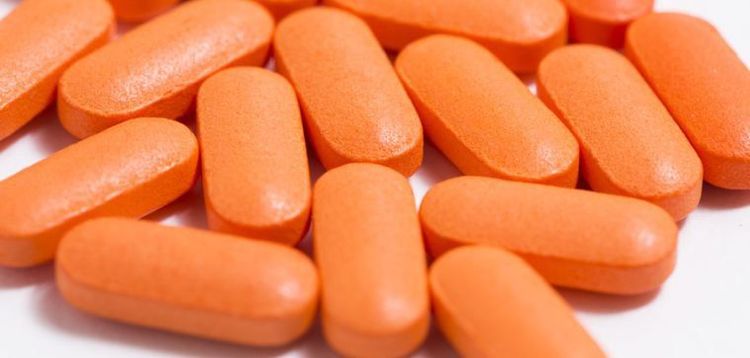
Bạn nên uống viên testosterone thay vì uống thuốc chống viêm không steroid
6. What are the natural supplements that improve low testosterone levels and suppress testosterone?
6.1 Natural supplements to improve low testosterone levels
Fenugreek (or fenugreek, bitter melon) and Indian ginseng, are considered to be effective testosterone boosters.
Indian Ginseng has been shown to slightly increase testosterone when considering the saliva of the users. This may be due to this plant's ability to reduce stress and cortisol levels in the user's body.
6.2 What foods cause testosterone suppression?
Consumption of foods that contain large amounts of sugar, carbohydrates and fats can lead to conditions such as obesity or decreased insulin response, which has a significant effect on testosterone levels. The persistent consumption of alcoholic beverages will also severely deplete this main male hormone.
There is no definitive cure for this condition. Low testosterone levels can be caused by many factors, and require specific treatments. The most common therapy is still testosterone replacement; however, this testosterone therapy is not suitable for all patients. Routine testing every 3 to 6 months can help patients monitor complications caused by treatment.
Please dial HOTLINE for more information or register for an appointment HERE. Download MyVinmec app to make appointments faster and to manage your bookings easily.
References: Healthline.com, Singlecare.com, Drugwatch.com




